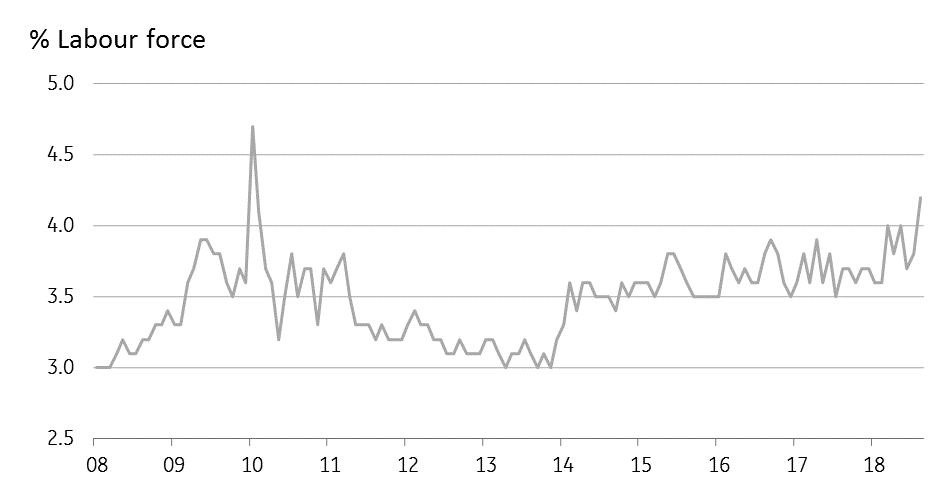Korean Unemployment rate rises to 4.2%
A 176 thousand fall in employment in Korea and an 84 thousand fall in the economically active part of the population delivered the big August unemployment rate rise to 4.2% (3.8% in July), despite a 36 thousand fall in the numbers actually unemployed.
4.2% - highest unemployment rate since 2010
We haven't seen an unemployment rate as high as this in Korea since 2010, when it briefly spiked up to 4.7%. So although our summary downplayed the increase as being largely a function of the sharp fall in labour market participation, this is still a disappointing release.
The key figure is the large fall in employment. That 176 thousand employment decline is a fairly dire outcome, and one that reflects the ongoing stagnation of manufacturing output, and narrow strength of the export sector - so heavily reliant on semiconductors.
Job losses were widespread across sectors, though service sector jobs, wholesale/retail, hotels etc which may have been more affected by the minimum wage increases than the manufacturing sector, saw the largest falls.
Korean unemployment rate (sa) %

What now? More policy efforts...
At least one thing is clear, we need not worry about any tightening from the BoK any time soon. They look to be on the sidelines at least until late next year - we will reassess then. For the first time, we are now being asked about BoK rate cuts. I don't feel we are there yet, but it isn't as silly a question as it would have been a few months ago, and maybe one that we have to consider more seriously if we see further weakness.
As for the government, recent policy own-goals of the minimum wage hikes and weekly hours caps will be met with offsetting tax breaks for small and medium-sized industries. It will take a few months to see how these are working. But there will be pressure to deliver more, even if only headline announcements until the effects of these other policies are clear, maybe scaling up the present policy measures given the seriousness of the slowdown we appear to be seeing.
Download
Download snap
12 September 2018
Good MornING Asia - 12 September 2018 This bundle contains {bundle_entries}{/bundle_entries} articles